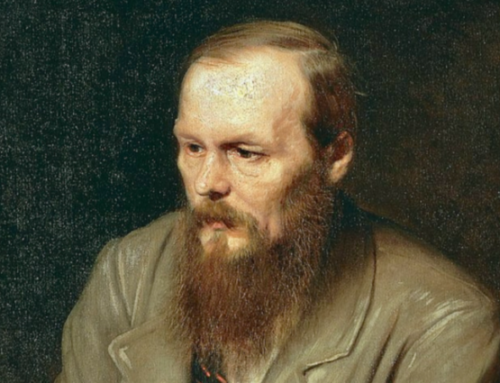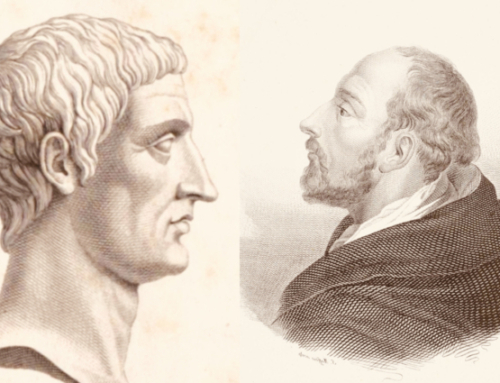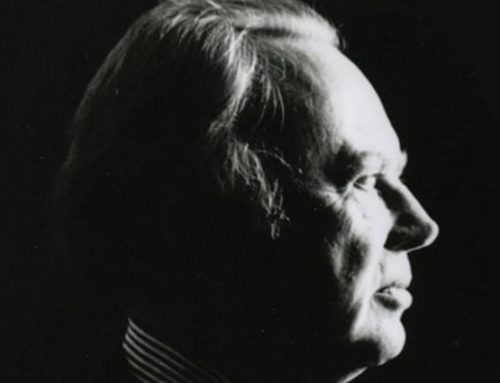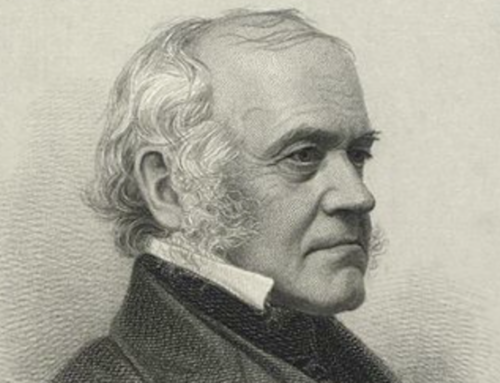 I was recently speaking with a friend of mine, a fellow member of the European Parliament. He and I are about the same age, came into politics at the same time, and have daughters of the same age. But we could have come from different planets. My friend grew up under a Communist dictatorship in Poland.
I was recently speaking with a friend of mine, a fellow member of the European Parliament. He and I are about the same age, came into politics at the same time, and have daughters of the same age. But we could have come from different planets. My friend grew up under a Communist dictatorship in Poland.
Although his father defected to Canada, he chose to stay in Poland because he wanted to be part of the change he saw coming. One reason he had such confidence was that as a boy he had witnessed John Paul II’s first visit to Poland as pope. My friend told me something about the visit that I had never considered before. He said, “You know, the Holy Father never once directly criticized the Communist authorities. He didn’t have to. He just offered something better.”
That, I think, should be the creed of conservatives: Just offer something better.
We can very easily find ourselves focusing on the things we don’t like. Don’t get me wrong, there are lots of things not to like. Our values are derided and traduced, our patriotism is scorned, our history is presented as a hateful chronicle of racism and exploitation, we are being laden with a debt unprecedented in peacetime. It’s easy to get angry.
But when you’re only angry, you’re not persuasive. People respond to optimism, to positivity. Ronald Reagan understood this. So did Margaret Thatcher. They had the trick of breathing a bit of warmth, a hint of optimism, into what they were saying.
At a time when our values are being attacked on all fronts, we need to offer something better. And is there a better story to be told than that of the free, English-speaking peoples? Is there a better patrimony than that which we share? It doesn’t matter where our ancestors came from, because Anglosphere values are passed on intellectually rather than genetically. The Anglosphere is why Bermuda is not Haiti. It’s why Singapore is not Indonesia. It’s why Hong Kong is not China (for now).
If there’s one thing that distinguishes English-speaking civilization from all the rival models, it’s this: that the individual is lifted above the collective. The citizen is exalted over the state; the state is seen as his servant, not his master. If you wanted to encapsulate Anglosphere exceptionalism in a single phrase, you could do a lot worse than what John Adams said about the Massachusetts state constitution: “A government of laws, and not of men.” Except that those words were not John Adams’s; he was quoting a seventeenth-century English Whig, James Harrington—neat proof of the shared inheritance that binds us together.
It’s easy to take this inheritance for granted. Freedom under the law, regular elections, open markets, habeas corpus, jury trials: these things are not the natural condition of an advanced society. They are precepts overwhelmingly developed in the language in which you are reading these words.
Freedom under the Law
How did it come about, this extraordinary bridling of the government? How did the Anglosphere break the pattern of slavery and caste and oppression that was the normal condition of humanity for thousands of years?
 In researching my book Inventing Freedom, I tried to approach the question as an anthropologist. What struck foreign visitors as unusual about the English-speaking peoples as our civilization reached its full flower in the eighteenth and early nineteenth centuries?
In researching my book Inventing Freedom, I tried to approach the question as an anthropologist. What struck foreign visitors as unusual about the English-speaking peoples as our civilization reached its full flower in the eighteenth and early nineteenth centuries?
We had plenty of visitors, including some extremely distinguished ones: Montesquieu, Voltaire, Tocqueville. Alexis de Tocqueville is often trotted out as the supreme witness in favor of American exceptionalism, which leads me to conclude that he is much more quoted than read. On the very first page of Democracy in America, Tocqueville flags up his thesis: that the New World allowed the characteristics of Europe’s nations the freest possible expression. In his eyes, therefore, Spanish America exaggerated the ramshackle corruption of Philip IV’s Spain, and French America, the autocracy and seigneurialism of Louis XIV’s France. But English America, as he always called it, took further the localism, the belief in individual freedom, and the mercantilism that he saw as characteristic of Great Britain. He came up with a beautiful phrase: “The American is the Englishman left to himself.”
Tocqueville and almost every other visitor to English-speaking lands focused on three unique characteristics of Anglosphere civilization.
The first was religious pluralism. I don’t mean religious toleration; that existed in lots of places, including some places that were in no sense free. But the freedom for every denomination to proselytize freely, that was unique. The notion that there was an open market in faith, as in any other idea—that you would compete for souls as you would compete ideologically for any other argument—was something without precedent. The American Republic led the way, but religious freedom became widespread throughout English-speaking societies before anywhere else really got the hang of it. The last, and relatively mild, restrictions on non-Christians in Great Britain—mainly those keeping them from standing for Parliament—were lifted by the 1830s.
The second thing that struck almost every visitor was geographical exceptionalism. You cannot come to most Anglosphere societies other than over water. With the exception of North America, the Anglosphere is an extended archipelago: Great Britain, Ireland, Australia, New Zealand, Singapore, Hong Kong. And although North America is not an island, the mentality of the American Founders was that of an island race. Look at Thomas Jefferson’s first inaugural address: “Kindly separated by nature and a wide ocean from the exterminating havoc of one-quarter of the globe.” Or listen to the words of George Washington’s Farewell Address: “Our detached and distant situation invites and enables us to pursue a different course. . . . Why forego the advantages of so peculiar a situation?”
The third Anglosphere characteristic that visitors noted was the miracle of the common law. In this beautiful, bizarre, anomalous system, the law is not written down from first principles and then applied to particular cases but rather grows up case by case, each judgment serving as the starting point for the next dispute. In other words, the law in English-speaking societies is not an instrument of state control but a mechanism open to the individual seeking redress. It contains an assumption of residual rights.
A common law system, where the law belongs to the whole population rather than being the property of the state, assumes that if something is not expressly prohibited, it is allowed. Every week in the European Parliament I see how unusual this assumption really is. Again and again I will say to my colleagues in Brussels, “Why are you regulating X or Y?” The answer always comes back, “Because it’s not regulated!” In the Eurocrat’s mind, unregulated and illegal are synonymous concepts. The idea that lack of regulation should be your default option, that it is the natural state of affairs, is seen as a bizarre Anglo-Saxon peculiarity.
Magna Carta, whose eight hundredth anniversary falls in June, includes an extraordinary phrase that is still on the statute books in the United Kingdom and has been cited more than a hundred times by the U.S. Supreme Court. It declares that no one should be denied or delayed justice, and that all must be accorded due process, to be tried only by “the law of the land.”
We use that phrase in English so often that we don’t stop to think about it. It’s unusual that we do; no other language has an equivalent phrase used in the same way. The law of the land: not the king’s law, not the law of some holy scripture interpreted by prelates, but a law that is the property of everybody.
Nobody really knows how our fathers stumbled upon this system. That’s the real miracle, and again and again, it turns out to be the hero of the story of what has shaped us. And it is why anybody who buys into our political and legal systems, wherever his ancestors came from, can become a full member of our joint Anglosphere civilization.
Don’t Throw Away What Works
I began by talking about offering something better, and I’d like to close with the same request. I find myself often having to say this to fellow conservatives. Maybe there’s something in our conservative temperament that prevents us from looking on the bright side.
The great nineteenth-century historian Lord Macaulay wrote, “We cannot absolutely prove that those are in error who tell us that society has reached a turning point—that we have seen our best days. But so said all who came before us, and with just as much apparent reason.” That was in 1830; think how many times we’ve been promised gloom and disaster since then. The supposed turning point varies from generation to generation. When I was a little boy, it was global cooling, and now it’s global warming. It could be bird flu, or it could be swine flu, or it could be drug-resistant superbugs. It could be an asteroid strike or nuclear war or debt. The cause changes but the argument never does: “This time it’s going to be different!” Well, it hasn’t been yet.
On all the underlying indicators, most people in most countries are living healthier and happier lives. On the really key metrics—longevity, literacy, infant mortality, calorie intake, height—we are living lives beyond the dreams of our great-grandparents, and more and more places in the world are being drawn in to that happy, upward surge by the miracle of free trade and specialization.
The Anglosphere model that has lifted us to such wealth and freedom and power in the world is incredibly well suited to what’s coming. We are an enormously inventive civilization, because we’ve released the genius of a free people in a market economy.
But we can’t throw away what’s working. We must retain our faith in our own values, in the extraordinary civilizational inheritance that your Founding Fathers didn’t invent but rather maintained and reasserted—an inheritance that they traced back through England’s Glorious Revolution, through the English Civil War, even back before Magna Carta to the inherited folkright of Anglo-Saxon common law. That unique inheritance has made our people the most prosperous and the most free anywhere on the face of the earth.
That’s the patrimony that you were privileged to inherit from your parents. Keep it intact; pass it on securely to your children.
Books on the topic of this essay may be found in The Imaginative Conservative Bookstore. Republished with gracious permission of the Intercollegiate Review (February 2015).








Well, now, we -do- know how they ‘stumbled’ on it. There is a long history of development from Moses through the rabbis to Stephen Langton, Aquinas, de Bracton, John Knox, Samuel Rutherford, and many others. It was the application of Biblical law to Anglo-Saxon customs and traditions, and in fact you do touch on it later in your article.
This is more of a song, than an article. Many thanks!